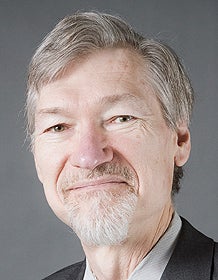Civil Rights for Whom?: Gay Rights Versus Religious Freedom
Abstract
Disapproval of homosexuality is widespread, deep-rooted and of long standing. Often this disapproval is tied to religion including, for nearly 3,000 years, the religions of "the Book" - Judaism, Christianity and Islam. In the last forty years a movement to change the treatment of homosexuality has emerged in the West. This movement first sought only tolerance. Now it demands acceptance of homosexuality as legally and socially equal to heterosexuality. The demand for approval has brought the gay movement into conflicts with "traditional" religion that flare throughout our culture.
This war is not amenable to compromise. The goals of the gay movement are not primarily economic; most gays already have above-average incomes. Because of the pervasive influence of religion in America, equal acceptance of homosexuality cannot be achieved unless religious groups either surrender and affirm this equality or, at least, those that do not are reduced to a despised minority forced to keep its views to itself. Since the gay movement's goals are not primarily economic, it cares about the law not so much for its financial impact as for its symbolic or expressive significance. Since the prize is a symbol, compromise is unacceptable except, perhaps, as a temporary tactic: anything less than full equality is inferior, second-class status, intolerable.
Full legal and social equality of homosexuality, however, cannot be squared with respect for the traditional religions that disapprove of it. If government treats homosexuality as equal to heterosexuality and by nondiscrimination laws compels citizens to do likewise, then disparagement of homosexuality must be condemned and suppressed just as racial discrimination now is. In effect, government must declare traditional religion to be false and evil.
The legal war between religion and the gay movement will not culminate in an Armageddon, a final showdown. Neither side is poised to obtain a national law providing that its claims always trump the claims of the other side. Accordingly, the war between religion and the gay movement seems fated to drag on indefinitely in innumerable battles large and small.
Part I of this Article discusses general federal and state constitutions and statutes that set some boundaries for specific disputes. Part II discusses government action supporting homosexuality, including antidiscrimination laws and religious exemptions therefrom. Part III discusses actions by private institutions against employees, students, or others who manifest traditional views about homosexuality. Part IV discusses general principles in the conflict between the gay movement and religious freedom and suggests some resolutions.
Keywords
Homosexuality, Religion, Civil Rights
Publication Date
2006
Document Type
Article
Place of Original Publication
Kentucky Law Journal
Publication Information
95 Kentucky Law Journal 553 (2006-2007)
Repository Citation
Dent, George W., "Civil Rights for Whom?: Gay Rights Versus Religious Freedom" (2006). Faculty Publications. 1095.
https://scholarlycommons.law.case.edu/faculty_publications/1095

